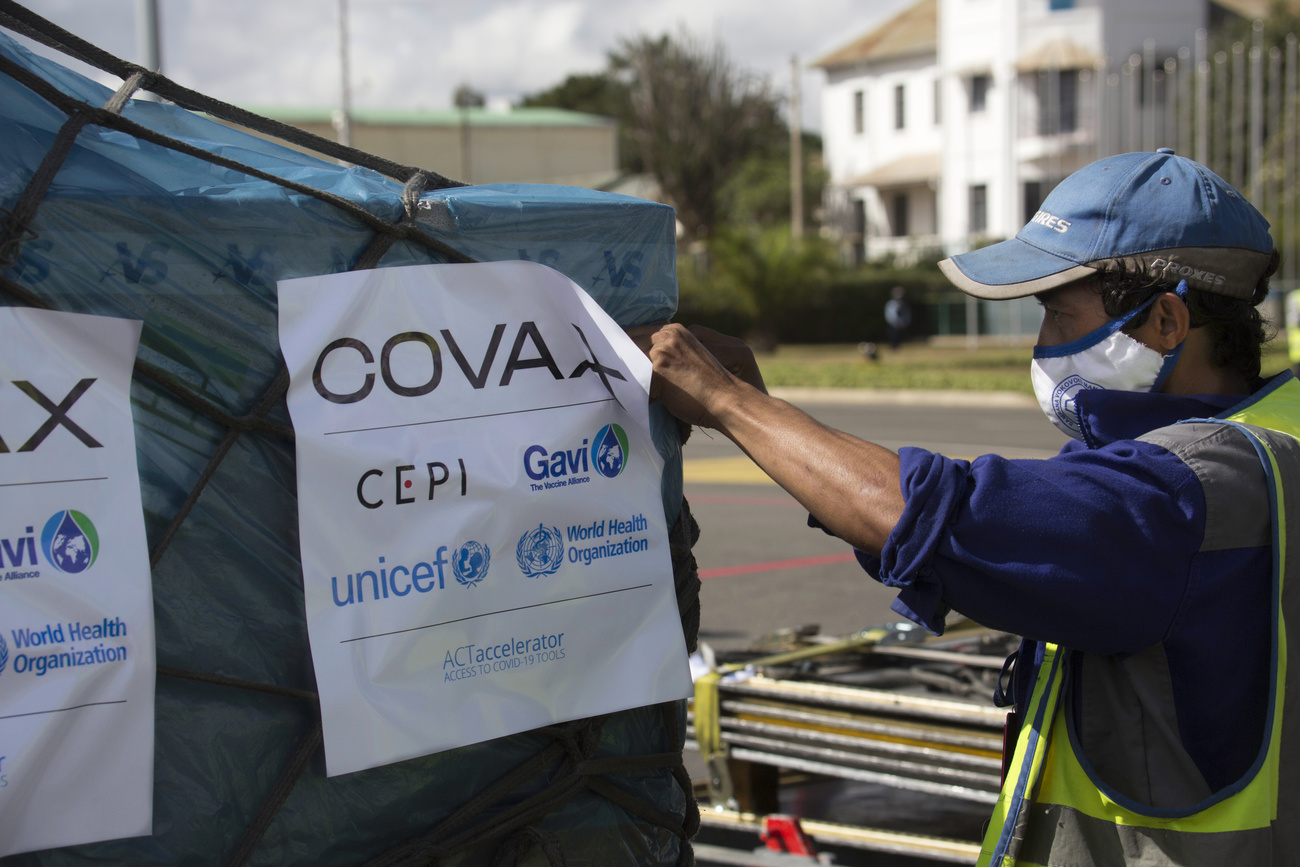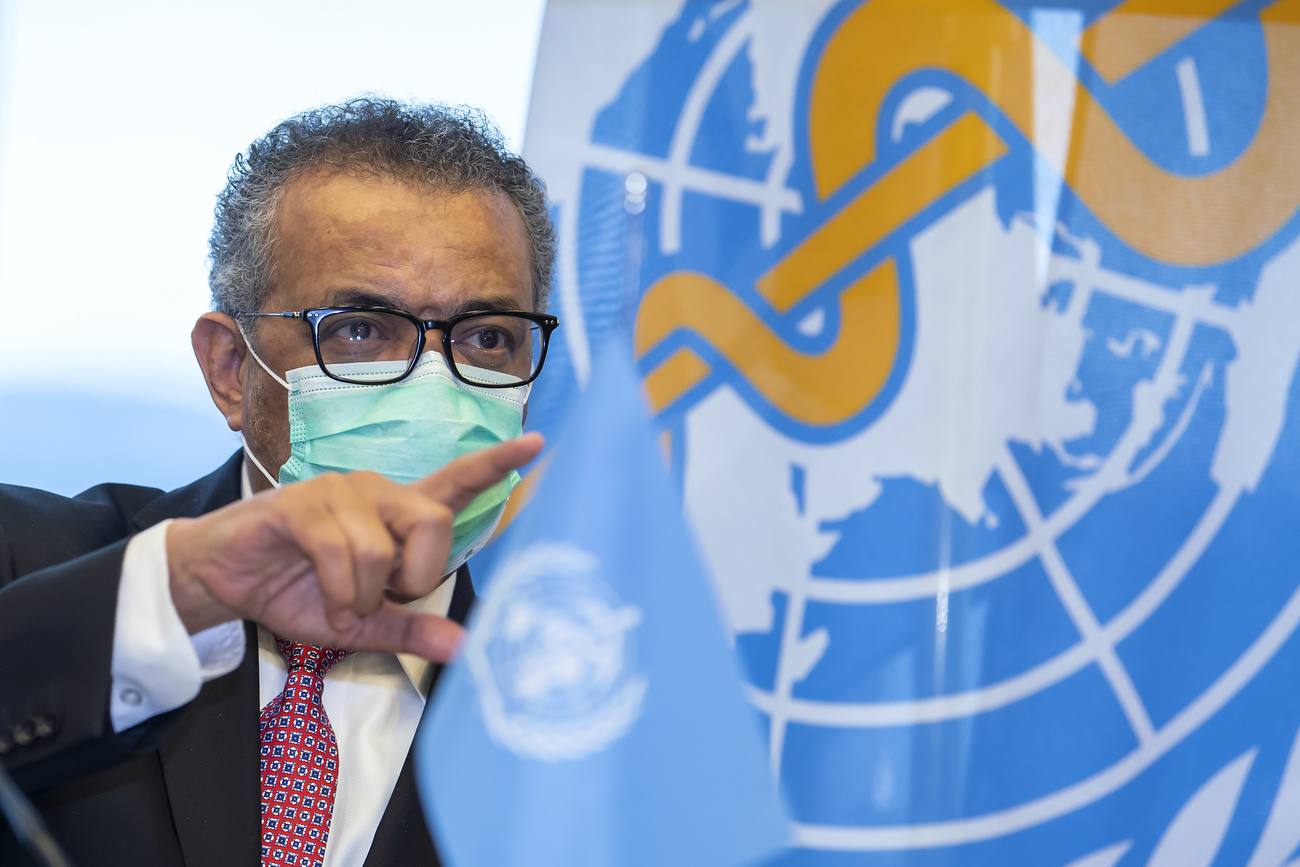WHO aims to boost global vaccine production, but no agreement on patents

A resolution approved at this year’s World Health Assembly to strengthen local production of medicines and other technologies acknowledges the current unequal distribution of vaccines but the plan fell short of agreement on how to boost vaccine access.
For many governments, specialists and international institutions, one of the legacies of the Covid-19 pandemic is the need to reorganize access to essential medicines such as Covid-19 treatments and vaccines.
For decades the WHO has gathered statistics, from maternal mortality to child malnutrition, to basic life expectancy, which prove beyond doubt that access to health is unfairly distributed between rich and poor.
But it is Covid-19 which has really brought this inequity home to the public, and to their governments. According to the WHO, high income countries are vaccinating their population at a rate 75 times higher than low income countries. Africa has received less than 5% of all doses administered so far.
Many countries also imposed restrictive measures, not allowing the exports of critical medicines. This has resulted, for many poor countries, in supply blockages.
What will the resolution achieve?
The resolution gives the WHO a mandate to help developing countries build their own supplies of medicines. During the next weeks and months, technical teams will be sent to different countries to identify supply bottlenecks and create strategies to ramp up production, with the help of investments and foreign aid.
But while the decision was widely applauded for its recognition of a failed system, it also showed a lack of agreement on how to increase vaccine production. The resolution, for instance, does not mention the possibility of a patent waiver, a proposal supported by 63 developing countries and which many argue could help to end the pandemic.
In October 2020, India and South Africa brought an initiative to the World Trade Organization (WTO) calling for a temporary waiver for patents on all products that could be useful in curbing the pandemic. As well as vaccines, this would include tests, medical equipment and possible treatments. If it were to be adopted, the waiver would be binding.
The idea is that laboratories around the world could have free access to the vaccine recipes, and produce their own generic versions. This, in the view of the proposal’s authors, would both reduce the cost of vaccines and expand global production.
When the resolution on strengthening local production was being drafted for the World Health Assembly, it too included mention of a possible patent waiver. But EU governments, Switzerland, Brazil and Japan insisted on a clause stating that any technology transfer should be voluntary and the idea of a waiver was dropped. Bern has been adamant in rejecting the idea of giving up patents, both at the WTO and WHO.
In fact, while the resolution was being approved at the World Health Assembly, another meeting in Geneva at the WTO showed that an agreement on patents is still far away.
On May 31, the 63 developing countries returned to the WTO with a revised proposal on an IP waiver to combat COVID-19. This time the United States, China, Ukraine and New Zealand joined the co-proponents of the initiative.
The revised proposal included a specified waiver duration of three years, while the initial text left the decision on the duration open.
However, a dozen countries (among them, Switzerland, Australia the UK, Japan, and Brazil as well as the EU) continued to express doubts about starting negotiations and asked for more time to analyze the revised proposal.
Many of those opposing a patent waiver argued that it would not solve the immediate crisis in which low income countries have virtually no vaccine supplies.
In a counter proposal, to be discussed at the G7 and at the WTO on June 8, the EU said the immediate urgent goal should continue to be ramping up production to share vaccines as fast and as widely as possible.
This new approach focuses on three strands: first, trade facilitation and disciplines to limit export restrictions; second, expansion of production, including through pledges by vaccine producers and developers, and third, clarification and facilitation of TRIPS Agreement flexibilities relating to compulsory licences.
A waiver, however, should not be considered (immediately).
Switzerland took a similar position. At the WTO meeting, Bern said it was “ready to examine any proposal that contributes effectively towards the objective of expanding production of COVID-19 vaccines and health technologies and facilitating equitable access”.
But it also stated that it would “require a holistic approach, consisting of strengthening supply chains, intensifying industry partnerships, efficient transfer of technology and know-how through voluntary licensing agreements to speedily scale up manufacturing outputs”.
In other words: a patent waiver was not the way forward.
Gaps
Despite the stalemate at the WTO, observers insist that the resolution at the World Health Assembly is significant, since it recognizes the importance of enhancing local production to achieve other development goals, as well as addressing the immediate health emergency.
It is also considered a step in the right direction towards price transparency, which has been a source of disagreement over the last decades between the private sector and governments.

More
Latest COVAX funding drive gathers over CHF2 billion
That’s why the resolution does not consider only the pandemic scenario. In 2018, despite huge progress, nine million people living with HIV still had no access to treatment and Africa still imports 80% of its essential medicines and 90% of its vaccines come from abroad.
Main points
In order to overcome this situation, the resolution asks governments to “to strengthen their leadership, commitment and support in promoting quality and sustainable local production of medicines and other health technologies”, and to develop evidence‐based holistic national policies, strategies and plans of action.
This would include North–South and South–South development cooperation, partnerships and networks to build and improve the transfer of health technology.
The resolution also urges the establishment of a global platform to promote needs‐based transfer of technology and local production.
Shortcomings
Médecins Sans Frontières (MSF) welcomed the resolution but claims it does not go far enough. “Given the recent positions of the US and other countries committing to engage in formal negotiations supporting the World Trade Organization TRIPS waiver proposal, the final text of the draft resolution should reflect this historical development,” it says.
But industries, represented by the International Federation of Pharmaceutical Manufacturers and Associations, used the debate at the WHO to argue that poor public systems are the largest barrier to access to health.
“Waiving patents of COVID-19 vaccines will not increase production nor provide practical solutions needed to battle this global health crisis,” it said.

More
Treaty and better-funded WHO needed to meet pandemic threats
“On the contrary, it is likely to lead to disruption; while distracting from addressing the real challenges in scaling up production and distribution of COVID-19 vaccines globally: namely elimination of trade barriers, addressing bottlenecks in supply chains and scarcity of raw materials and ingredients in the supply chain, and a willingness by rich countries to start sharing doses with poor countries,”, the industry body concluded.
The US insisted that the current crisis shows the need to strengthen supply chains around the world. “The US believes strongly in intellectual property protections, but in the service of ending this pandemic, supports the waiver of those protections for COVID-19 vaccines,” the US delegation declared.
Portugal, on behalf of the EU, welcomed the resolution, stating that the current crisis shows that the production capacity needs to expand around the world. According to the EU, the bloc views “fair access” as a “global public good” and supports the idea of establishing production hubs in emerging countries, especially in Africa.
In a statement, the 46 Africans nations also applauded the decision. “The pandemic demonstrated the vulnerability of developing counties”, they claimed. Their hope is that the document strengthens the mandate of the WHO to provide technical aid to countries in order to increase production. But they insisted that the waiver on patents will be essential and suggested Africa won’t give up on the idea.
Almost a year and a half after the pandemic was declared, meetings in Geneva reveal how the international community is still far from an agreement that can boost access to vaccines and treatments.
For negotiators, however, the next four weeks may be crucial to establish whether the world will have a new structure to distribute doses, or if it will see a deepening of the disparity between regions.

In compliance with the JTI standards
More: SWI swissinfo.ch certified by the Journalism Trust Initiative







You can find an overview of ongoing debates with our journalists here . Please join us!
If you want to start a conversation about a topic raised in this article or want to report factual errors, email us at english@swissinfo.ch.